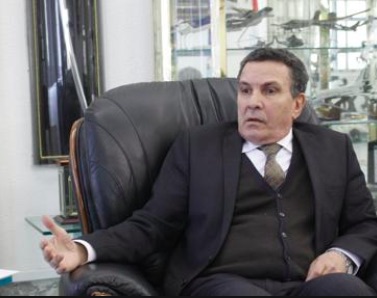TOLERANCE AND SOLIDARITY .
An article from 7sur7 Senegal (translation by CPNN)
Senegal today [25 juin] hosted the Dakar International Post-Forum Seminar on Peace and Security in Africa. The seminar is organized as part of a partnership between the Ministry of Foreign Affairs and Senegalese and the Center for Higher Studies of Defense and Security (CHEDS) of Senegal. This year it is focused on the theme: “Prevention and fight against against violent extremism: what are the people’s responses? ”

Horchani Ferhat
Professor at the Faculty of Law and Political Science of Tunis, Horchani Ferhat, in his introductory presentation, explained the reasons for the failure of the international community in the fight against terrorism. This failure, according to him, is reflected at least on three levels.
(Article continued in the right column)
(Click here for the original French version of this article.)
Islamic extremism, how should it be opposed?
(Article continued from the left column)
The first is the dramatic increase in terrorist groups. According to him, the number of terrorist groups is growing with different names in different localities.
The second level is that, according to Professor Ferhat, the current terrorist groups (Islamic State, Daesch) have broader ambitions than mere terror. They have territorial and political ambitions.
Regarding the third level of failure, the professor reports that these groups are able to attract a large number of young people across national borders. The threat is transnational, even transcontinental.
For the professor, this relative failure of the international community, despite all the money that has been spent, requires another approach. “We can not go on like this,” said Professor Horchani Ferhat, thinking that we need a better approach to the phenomenon of terrorism. The objective should be to eradicate not only what is visible but to root out the evil at its roots.
“We need a real strategy, and this strategy needs to be global and multifaceted, which means that it must involve not only the State but also the national communities, that is to say the general populations”, he stressed. He also recalled that the phenomenon of terrorism is very complex and can have very different motivations. It can, in his opinion, have its source in crime, the drug trade, the search for easy money, radicalization, social and economic exclusion, and absolute poverty, among others.